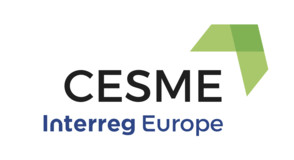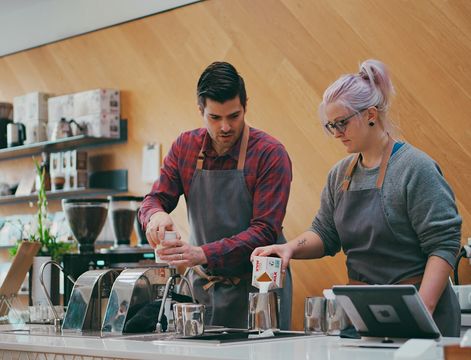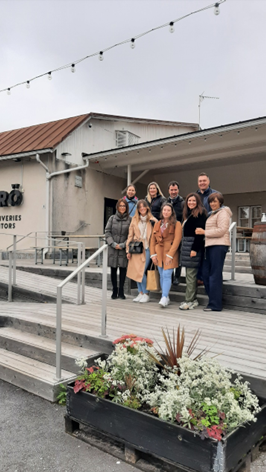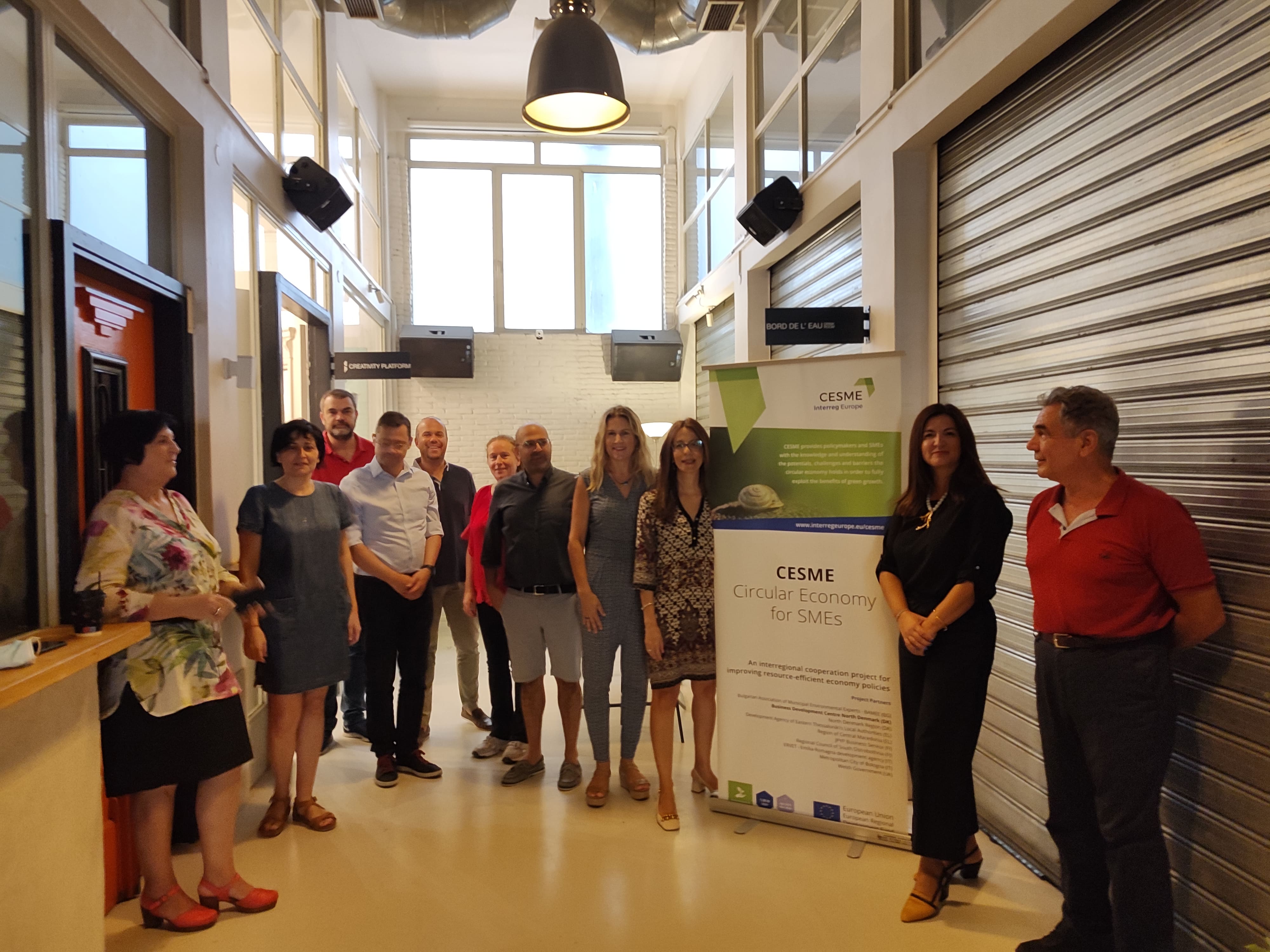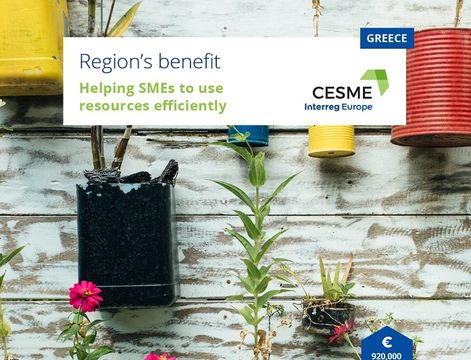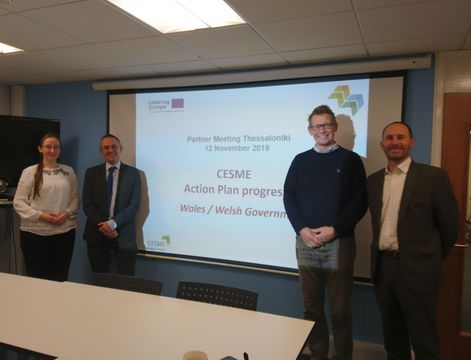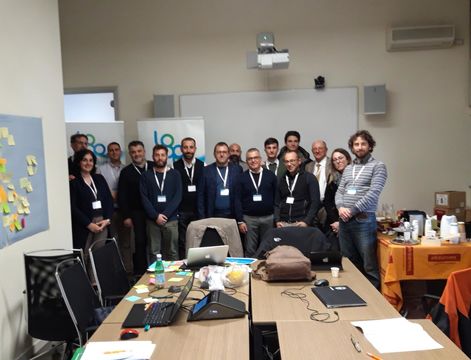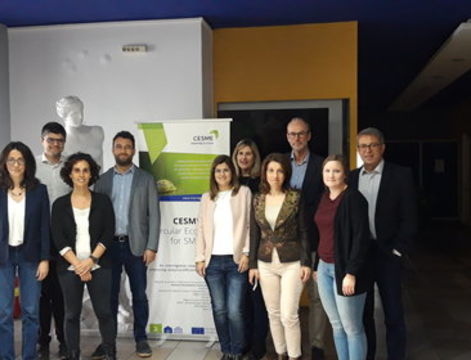In 2020, we asked you to vote on your favourite story from our publication on 30 stories of policy changes. In the topic of Environment and resource efficiency, you chose: CESME.
CESME also got the highest number of votes overall. And they were really excited to get such a high score. ‘We tried hard to promote our good practices’ says Vasiliki Papadopoulou of the Anatoliki Development Agency in Greece. ‘But we did not expect this kind of result’.
Meet the project
CESME is working to include SMEs in the circular economy. Green growth brings a lot of benefits to regions, but SMEs face many barriers to greening their products, production processes, and business practices. They rarely have access to the same networks as larger businesses, for example. So, it’s more difficult to stay to up to date with new technologies or communicate with potential clients and investors. CESME is helping by improving relevant policy instruments and designing support packages.
On 10 December 2020, we celebrated CESME’s achievements during an online event. We spoke to Vasiliki Papadopoulou of the Anatoliki Development Agency in Greece, and Kostas Michailidis and Stavros Mantzanakis from the region of Central Macedonia about their project. Here is a summary:
Q: What change did CESME bring to Central Macedonia?
Before the CESME project, we didn’t really know a lot about circular economy. But through the project, we saw that there is a really big interest among our stakeholders. We also saw that there is a really big potential for our region.
And since we had plans to create a one-stop liaison office to support entrepreneurs in innovation, we thought that it would be good idea to include support for our SMEs that would allow them to apply circular economy practices into their everyday business.
Q: Have local companies expressed an interest in this type of advice or service?
Companies are keen to absorb any innovation that they can apply and that gives them some kind of competitive advantage. The challenge here is to understand what circular economy means.
Protecting the environment, the atmosphere, biodiversity. Central Macedonia has a high potential for tourism so we don’t want to mess that up. But at the same time, we want to offer them ways to be more competitive in the global market.
Q: Was it difficult to find the right inspiration in other partner countries?
There was not a particular challenge. We were all very excited when we came across a new practice. But we always had to think about how we could adapt this to our reality, to our local environment.
For that, we had the help and support of our stakeholder group.
Watch the interview
You can watch the full interview to find out more about the project.
Want to know more?
Visit CESME's website and read through their good practices.
Or flip through our 30 stories publication to learn about other policy changes throughout Europe.
Image copyright: Bernard Hermant on Unsplash.
